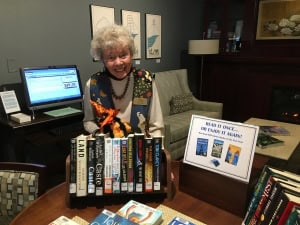The Herrons’ Peace Corps Adventure in Belize….. and The Gambia
This is part of a series of articles on the experiences of RVM residents in the Peace Corps. Also in this issue is the article on Russy and Anita Sumariwalla; the November issue featured Joni Johnson and Asifa Kanji and David Drury. Stay tuned…
Another Peace Corps Adventure- So good that they signed up for # 2
by Joni Johnson
Jean Herron, a resident at RVM since Bastille Day, 2001, joined the Peace Corps with her husband John in 1985. He had retired not long before and was not quite ready to settle down. Jean, who had not yet retired, decided to join him in a new adventure, and so the Herrons were off to Orange Walk, Belize, for a two-year experience from 1985-1987. Jean had been a high school English teacher in Eureka. John had a varied career, first in forestry for ten years, then as a high school chemistry teacher, also in Eureka.
According to folk stories, Orange Walk got its name from the many orange groves that had hugged the banks of the New River, which flows through the town and was a major trading route centuries before for the Maya. The town is a cultural mix of Mestizos (Spanish-Maya), Maya, Chinese, East Indians and Creoles.
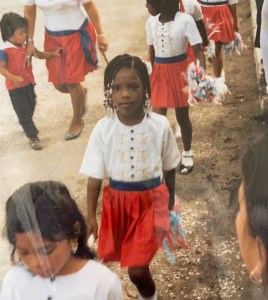
Jean and John’s assignment was to train elementary school teachers. To prepare, they did the second half of their three month Peace Corps training 53 miles south of Orange Walk, in Belize City, home of the only Teachers Training College in the country. In Orange Walk, because they made a substantial salary of $350, they were able to afford a house with running water and a toilet and even hot water, when the water heater for the bathroom was turned on and left to heat for a while. Water was potable with a few drops of Clorox.
For the first year, both John and Jean taught elementary teachers how to teach. The Belizean teachers were there on provisional credentials and were required to attend classes and receive support. Jean also taught an English class every day from 10 to 12, changing elementary schools each day. In addition, she and John did demonstration lessons for their teachers in each elementary school and then left the teachers assignments to complete. They did all of their traveling on a motorcycle, John driving and Jean in the back. At one point, Jean, tired of always being in the rear, decided to do the driving. Unfortunately, John was 6’4” and significantly heavier, and with the weight distribution having changed dramatically, a push on the accelerator caused John to fly off the seat. Luckily, he was wearing a helmet. From then on, he was the driver.
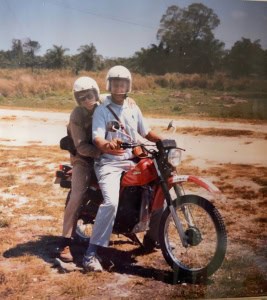
Jean continued her position as teacher trainer throughout their two years in Belize. However, John transferred to the Forestry department to help the Belizeans with their forestry efforts. Belize has extensive forest and abundant mangroves. Among the environmental issues facing Belize are deforestation and the management of forest resources. It is generally believed that the amount of deforestation that has occurred in Belize is much less than that which has occurred in other rain forest countries. When Jean’s daughter, Kathleen, visited Belize in 2013 she noticed how proud the natives were of how they were managing their forest resources. This was one of the projects on which John had worked.
After their return to the United States in 1987, the Herrons were still not quite ready to settle down. And so they reapplied to the Peace Corps. This time they were sent to The Gambia, which is the smallest country in mainland Africa and totally surrounded by Senegal except for its western coast along the Atlantic Ocean. It was a British Colony before achieving its independence. Senegal, on the other hand, had been a French colony.
This assignment proved more difficult for the Herrons for several reasons. In addition to English, they needed to learn a native language (Mandingo). The culture proved more challenging because of the hardships they saw, not only in terms of poverty but also in terms of culture. Women were definitely relegated to second class and were expected to handle everything except the raising of cash crops. Because of the extreme poverty, there was a great deal of corruption. When financial aid came in from a variety of foreign organizations to pay for various projects, the money would often be embezzled and the projects would receive significantly less than what had been offered. The Gambian system of extended families put financial demands on the wage-earners, which contributed to the corruption.
Jean and John enjoyed their experience with a completely new culture in 
spite of their frustration with the system, even learning to eat from communal bowls. This time, Jean helped students develop their school gardens. She had been a big gardener during her time in Eureka, California. And so she helped the teachers and their students improve their garden projects. John worked again in forestry with the Gambian Forest Service, teaching lessons on forest conservation.
Unfortunately, the Herrons could not fulfill their two-year obligation in The Gambia. John fell seriously ill after the first year, and they had to return home. Luckily, he was able to recuperate over time. But they were sad to cut short their stay. Jean loved her Peace Corps experiences. She and John appreciated the kindness and respect they received from their new friends in both Belize and The Gambia. Jean often told her children, “The Peace Corps gave us the chance to make a difference in the lives of many people, and we became better people because of it.”

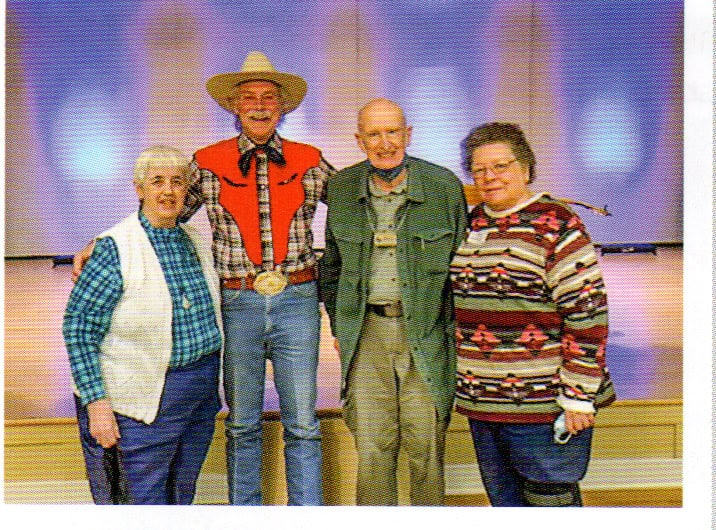


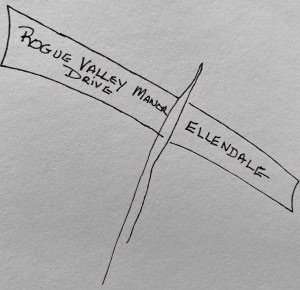 I’m going up the hill past the golf course and, oh, oh. I must have taken the wrong turn looking at those turkeys.
I’m going up the hill past the golf course and, oh, oh. I must have taken the wrong turn looking at those turkeys.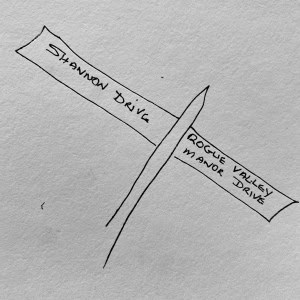 turkeys for Thanksgiving, reindeer for Christmas— what happens on Groundhog Day? But, what the…? I’ve got to keep my eyes on the road—look, the street sign says I’m now on Shannon Drive! I swear I didn’t make a turn.
turkeys for Thanksgiving, reindeer for Christmas— what happens on Groundhog Day? But, what the…? I’ve got to keep my eyes on the road—look, the street sign says I’m now on Shannon Drive! I swear I didn’t make a turn.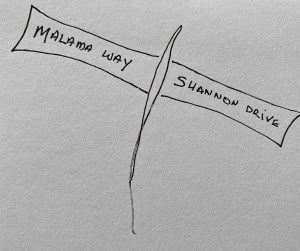 That’s GPS, not CBS. But Mom, can you believe it? Now she’s telling me I’m on something called Malama Way. What’s a Malama?
That’s GPS, not CBS. But Mom, can you believe it? Now she’s telling me I’m on something called Malama Way. What’s a Malama? 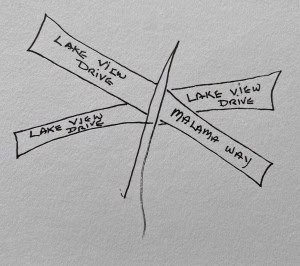 those other two. Half way down the block, look for me. I’ve got a new hairdo, that’s why I’m wearing that blue dress so you’ll be sure it’s me. Oh, I see your car now. You hoo! Here I am. And here you are. Now, wasn’t that simple, sweetie? Those pilgrims didn’t need silly street signs to find Plymouth Rock, did they?
those other two. Half way down the block, look for me. I’ve got a new hairdo, that’s why I’m wearing that blue dress so you’ll be sure it’s me. Oh, I see your car now. You hoo! Here I am. And here you are. Now, wasn’t that simple, sweetie? Those pilgrims didn’t need silly street signs to find Plymouth Rock, did they? 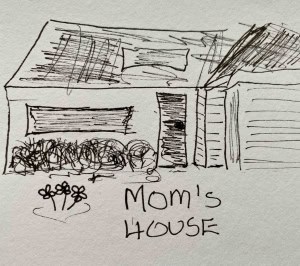
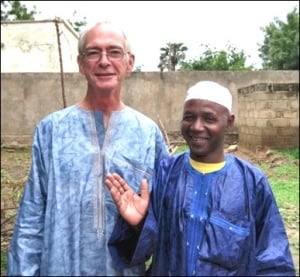
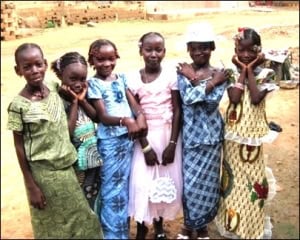
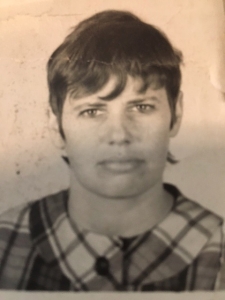
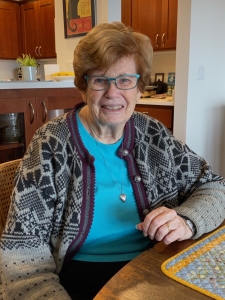

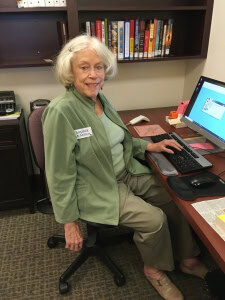 a retired academic librarian at the University of Hawaii. Sophia and Lynda Hansen are responsible for cataloguing books, a complex process, with the assistance of Barbara Maxfield. Bonny Turner oversees the budget and volunteer training. Jan Hines is responsible for book acquisitions. Liz Caldwell handles a myriad of other functions, not the least of which is tracking circulation. Among Anne Newins’ duties is determining when to remove books from the collection.
a retired academic librarian at the University of Hawaii. Sophia and Lynda Hansen are responsible for cataloguing books, a complex process, with the assistance of Barbara Maxfield. Bonny Turner oversees the budget and volunteer training. Jan Hines is responsible for book acquisitions. Liz Caldwell handles a myriad of other functions, not the least of which is tracking circulation. Among Anne Newins’ duties is determining when to remove books from the collection.
 Proceeds will benefit
Proceeds will benefit
